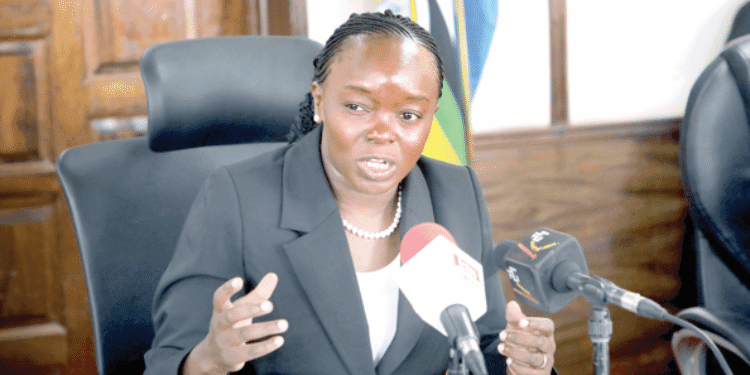We're loading the full news article for you. This includes the article content, images, author information, and related articles.
Over 400,000 Kenyan teachers face a mandatory shift to the new Social Health Authority (SHA) medical scheme by December 1, 2025, sparking legal challenges and widespread unease over reduced pay, lack of consultation, and the scheme's readiness.

A significant policy shift is set to impact over 400,000 educators across Kenya as the government mandates the transition of their medical insurance from a private consortium led by Minet Kenya to the state-run Social Health Authority (SHA), effective Thursday, December 1, 2025. The move, part of the broader Social Health Insurance Act of 2023 which replaces the long-standing National Health Insurance Fund (NHIF), has been met with a mixture of official endorsement and significant resistance from teachers and their representatives.
While the Teachers Service Commission (TSC) and the leadership of major unions like the Kenya National Union of Teachers (KNUT) and the Kenya Union of Post-Primary Education Teachers (KUPPET) reached a formal agreement on the transition on Monday, November 10, 2025, the consensus is far from universal. Many educators and school administrators express deep reservations, citing a lack of meaningful consultation and fears of diminished benefits and financial strain. Two teachers have already filed a petition in the Employment and Labour Relations Court in Kisumu, challenging the legality of what they term a "forced migration."
A primary source of anxiety for teachers is the financial implication of the new scheme. The SHA introduces a mandatory 2.75% deduction from the gross salary of every teacher, a significant change from the tiered contribution system under the old NHIF. This new levy, coupled with existing deductions for the housing levy, increased NSSF rates, and Pay As You Earn (PAYE), is leading to substantially reduced take-home pay, causing widespread frustration.
For instance, a teacher in Job Group C3 with a gross salary of Sh81,584 now faces total deductions amounting to Sh51,647.75, leaving them with a net pay of just Sh23,936, according to a November 2024 report. Willie Kuria, Chairman of the Kenya Secondary Schools Heads Association (Kessha), stated on November 1, 2024, that taxes now account for over half of a teacher's gross salary, making the profession increasingly unattractive. The financial squeeze is compounded by a High Court ruling in June 2025 where Justice Chacha Mwita deemed the 2.75% deduction from gross pay as a form of "double taxation," though no formal orders were issued pending an appeal.
The transition process itself is mired in controversy. Critics, including some union insiders and constitutional lawyers, argue that the deal to move teachers to SHA bypassed crucial legal requirements such as competitive bidding and public participation. The decision is described by some as a "single source" procurement, compelled upon the TSC and union leaders during meetings with the executive, raising questions about transparency and due process.
This lack of consultation has angered many, including the Kenya Primary School Heads Association (Kepsha), whose members protested the move during their annual conference in Mombasa, stating the deal was struck without their consent. The legal framework for the SHA has also faced significant hurdles. On July 12, 2024, the High Court declared the Social Health Insurance Act 2023 unconstitutional due to inadequate public participation, giving Parliament 120 days to rectify the legislative process. Although the Court of Appeal later lifted an order barring the implementation of the Act in January 2024, it kept three contentious sections suspended, including one that makes SHA contributions a precondition for accessing government services.
Government officials maintain that migrating all public servants to a single, streamlined medical scheme will enhance efficiency and service delivery under the Universal Health Coverage (UHC) agenda. Proponents of the deal promise a more comprehensive benefits package, including better overseas treatment options, expanded chronic illness coverage, and access to a vastly larger network of 9,600 health facilities, up from 800 under Minet.
However, teachers remain skeptical, pointing to the troubled experiences of other civil servants, like the police, who have reported challenges with the new system. There is also confusion regarding the scheme's capacity. In April 2025, KUPPET officials expressed shock after TSC CEO Dr. Nancy Macharia revealed that SHA had declined a proposal for a comprehensive cover for teachers, citing a lack of capacity and requiring Ksh 37 billion to enroll them. This has led to teachers being denied services despite having SHA contributions deducted from their payslips, fueling demands for refunds and greater accountability. As the December 1 deadline looms, the nation's educators are caught between the government's push for health reform and deep-seated concerns over their financial well-being and the future of their healthcare. The outcome of the court challenge and the government's response to the widespread unease will be critical in determining the success of this monumental transition.
Keep the conversation in one place—threads here stay linked to the story and in the forums.
Sign in to start a discussion
Start a conversation about this story and keep it linked here.
Other hot threads
E-sports and Gaming Community in Kenya
Active 9 months ago
The Role of Technology in Modern Agriculture (AgriTech)
Active 9 months ago
Popular Recreational Activities Across Counties
Active 9 months ago
Investing in Youth Sports Development Programs
Active 9 months ago